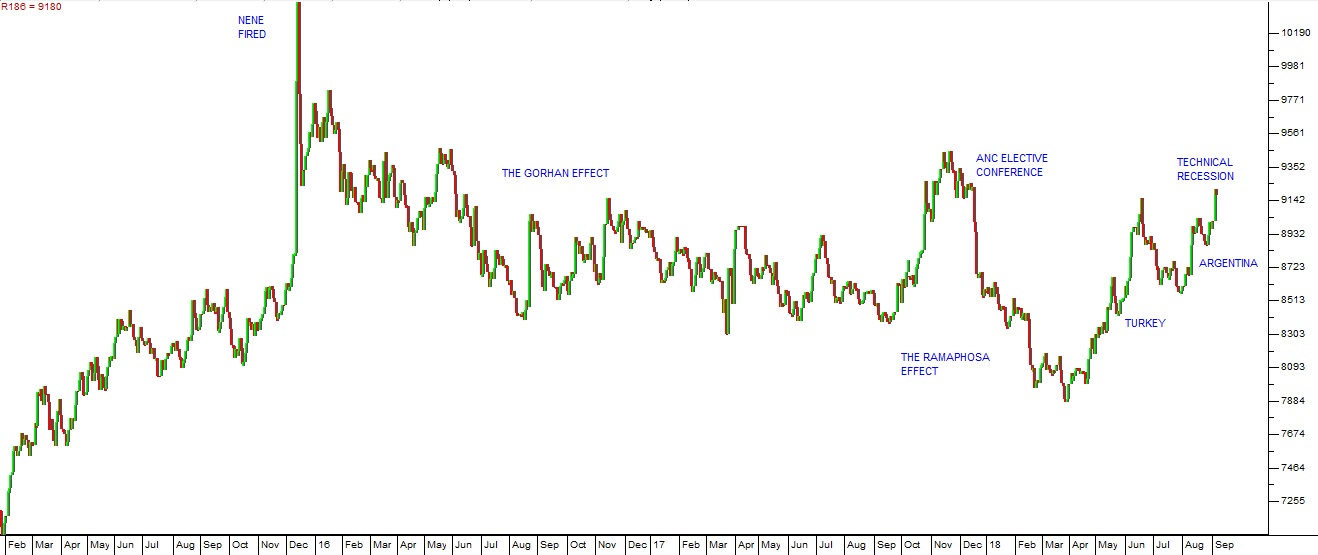The R186
South Africa is an emerging economy, together with 18 other countries, whose economies are considered to be not as well developed, regulated and secure as first world countries. These countries are perceived to be growing more rapidly than first world countries amid high political risk. The higher political risk associated with emerging economies means that, for them to attract investment capital from the first world, they must offer higher interest rates. So, for example, the South African government�s benchmark long bond, the R186, trades at an effective yield of around 9% at the same time that the US government�s 10-year treasury bill trades at a yield of around 3%. The difference between these two yields is a direct and objective measure of the political risk associated with South Africa.
The world�s investors are at once attracted by the higher interest rates offered by emerging economies and repelled by the higher risks which they represent. This ambivalence explains their alternating states of �risk-on� and �risk-off�. Events and developments in the emerging economies are constantly evaluated to determine whether they represent an increase or decrease in emerging market risk. The result is that international investors alternately put money into emerging markets or take it out � which has the effect of pushing the yields on the long-term bonds of emerging economies up and down. And International investors tend to treat all emerging markets as a single risk entity. So developments in one emerging economy have a direct knock-on impact on the other emerging economies. Of course, risk-on/risk-off sentiment is also impacted by developments such as Trump�s trade war with China and other countries. Such anti-business changes make the entire investment community more risk averse with the result that they tend to move away from high-risk, high-return investments and towards US T-bills. A study of the yield on the R186 long bond is interesting because it reveals the importance of developments in the news. Consider the chart:

Here you can see the tail end of Jacob Zuma�s long negative impact on the R186 yield, which culminated in his firing of Nene as Minister of Finance and appointment of Pravin Gordhan. For the next 18 months, Pravin Gordhan�s influence saw international risk perceptions of South Africa steadily improve. Gordhan�s firing and the ANC elective conference in 2017 saw the yield climb back as risk perceptions deteriorated. With the election of Ramaphosa, those negative perceptions disappeared and �Ramaphoria� saw the yield fall back below 8%. After that, the implosion of the Turkish lira was followed quickly by the collapse of the Argentina economy and then finally by the news that South Africa itself had entered a technical recession. So now perceptions are that South Africa again represents the sale level of risk that it did in December 2017 or in May 2016. A similar pattern can be seen in the rand/US dollar exchange rate. In assessing all this negativity, you should not lose sight of the fact that South Africa is still regarded as the best of the emerging economies, the most stable and the one with the least political risk. Our currency is the most heavily traded and hence the one which is most favoured by international currency speculators. This means that any swing back towards risk-on will see us benefit first and by the most as funds flow back towards emerging economies. In our view, the current sell-off on the JSE represents a buying opportunity.
← Back to Articles